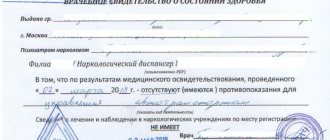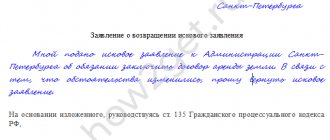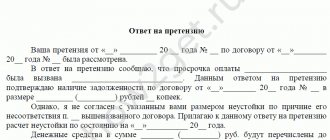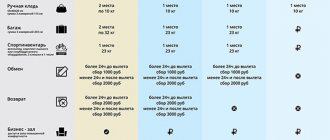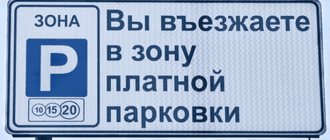E. M. Taranenko author of the article, legal consultant to Askon
Rospotrebnadzor can conduct scheduled inspections only of those organizations and individual entrepreneurs whose activities and production facilities are classified as extremely high or high risk. In the field of consumer rights protection, routine inspections by Rospotrebnadzor are not carried out at all. With unscheduled events the situation is the opposite. Coronavirus requirements have become more stringent. Rospotrebnadzor imposes serious fines and may even close the company. In this article we will look at how unscheduled inspections are carried out, what inspectors have the right to do, and what they now pay special attention to.
Unscheduled inspections of Rospotrebnadzor in 2021
The ability to conduct unscheduled inspections is also limited. In 2020, Rospotrebnadzor has the right to conduct only the following types of inspections:
a) unscheduled inspections, the grounds for which are facts of harm to the life or health of citizens or threats of harm to the life or health of citizens, the occurrence of emergencies of a natural or man-made nature and the conduct of which is agreed upon by the prosecutor’s office;
b) unscheduled inspections appointed to verify compliance with a previously issued order to take measures aimed at eliminating violations that entail an immediate threat of harm to the life and health of citizens, the implementation of which is agreed upon by the prosecutor's office;
c) unscheduled inspections carried out on the basis of an order from the President of the Russian Federation, an order from the Government of the Russian Federation indicating a specific legal entity and (or) individual entrepreneur, the prosecutor’s request to conduct an unscheduled inspection as part of supervision over the implementation of laws based on materials and appeals received by the prosecutor’s office;
d) unscheduled inspections, the grounds for which are established by clause 1.1 of part 2 of article 10 of the Federal Law “On the protection of the rights of legal entities and individual entrepreneurs in the exercise of state control (supervision) and municipal control” and clause 4 of part 10 of article 19 of the Federal Law “On Licensing” certain types of activities";
e) unscheduled inspections appointed to verify the fulfillment of a previously issued order, the decision to recognize which as executed entails the renewal of a previously suspended license, accreditation or other document of a permissive nature;
f) unscheduled inspections appointed in order to verify the execution of a previously issued order when the state control (supervision) body, municipal control body receives a request from a legal entity or individual entrepreneur to conduct an inspection in order to recognize the order as executed.
Planned events
The inspection schedule is drawn up for the next year before December 31 of the current year, it is approved and published in the public domain. You can be included in the product quality inspection plan based on the fact that the company’s activities relate to the production or sale of food products, while:
- it was registered more than three years ago;
- Three years have passed since the last planned control event.
You can get acquainted with the plan on the website of the regional prosecutor's office, where there is information about the name of the legal entity, the planned object, the period and duration of the inspection. You can find an organization by entering the INN or OGRN numbers.
When will they come with an inspection, and when will they conduct it remotely?
Inspections, both scheduled and unscheduled, are carried out remotely, using means of remote interaction, including audio or video communication.
A direct visit to an organization is only permissible during an unscheduled inspection if:
- the departure was approved by the prosecutor's office during the coordination of inspections, the grounds for which are facts of harm to the life, health of citizens or a threat of harm to the life, health of citizens, the occurrence of emergencies of a natural and man-made nature, or verification of compliance with previously issued orders;
- the possibility of travel of officials of state control (supervision) bodies and municipal control bodies is provided for by the order of the President of the Russian Federation, the order of the Government of the Russian Federation, and the prosecutor’s requirement to conduct inspections.
As a general rule, Rospotrebnadzor is obliged to inform about an unscheduled inspection at least 24 hours in advance by any available means, so the organization needs to control all means of communication, including email, if it is listed in the Unified State Register of Legal Entities or was previously used in contacts with Rospotrebnadzor.
However, in some cases, notification of an inspection is not required. For example, without notification, representatives of Rospotrebnadzor may come with an inspection if the organization’s activities have caused or are causing harm to the life and health of citizens, as well as if an emergency occurs or is threatened.
Violations of storage conditions
Almost all samples showed signs of freezing. The products of the Troekurovo factory turned out to be stale, as evidenced by the unpleasant smell, sticky surface with a white coating. Muscle tissue is gray.
Testing with Nessler reagents confirmed the presence of light fatty acids. This indicator indicates stale chicken meat.
Based on the results of a study, Roskontrol identified the only product that can be recommended for consumption - “Every day”. The brands “Yasnye Zori” and “Servilux” are listed as chicken meat with quality deficiencies. The rest are included in the list of products not recommended for purchase.
The expert assessment showed unsatisfactory results, indicating non-compliance with sanitary standards and production technology for semi-finished meat products.
COVID-19: disinfection, QR code... what else will be checked
Since now the greatest attention is paid to anti-epidemic measures, on-site inspections of Rospotrebnadzor in most cases are aimed at monitoring compliance with sanitary legislation and the implementation of sanitary anti-epidemic (preventive measures) at the place of actual implementation of the organization’s activities.
Representatives of Rospotrebnadzor evaluate the organization’s activities for compliance with sanitary rules (for example, SP 3.1.3597-20), safe operating standards, including recommendations for the prevention of coronavirus infection (for example, MP 3.1/2.2.0170/3-20. 3.1).
Despite the fact that most of the norms of SP 3.1.3597-20 are intended for medical organizations, this document is mandatory for execution by all legal entities and individual entrepreneurs.
In general, the recommendations of Rospotrebnadzor are not regulatory legal acts and, as the name suggests, are advisory in nature. However, the need to comply with the recommendations of Rospotrebnadzor is confirmed by judicial practice (for example, the Decision of the Arbitration Court of the Perm Territory dated October 7, 2020 in case No. A50-15018/2020). In addition, in St. Petersburg, the mandatory requirements of Rospotrebnadzor recommendations and safe operating standards are directly provided for by the current version of the St. Petersburg Government Resolution No. 121 dated March 13, 2020 (clauses 2-5.2, 2-5.14, 2-5.21, 2-5.23, 2 -25, 2-40).
An on-site inspection begins with the presentation of an official ID, the mandatory familiarization of the head of the inspected legal entity, the inspected individual entrepreneur, with the order (order) to conduct an on-site inspection and with the powers of Rospotrebnadzor officials conducting the on-site inspection, as well as with the goals, objectives, grounds for conducting an on-site inspection, types and volume of control measures, composition of experts, representatives of expert organizations involved in the on-site inspection, with the terms and conditions of its conduct.
An on-site inspection is carried out in the presence of the head of the inspected organization or the inspected individual entrepreneur or their authorized representatives.
The verification procedure includes:
- reviewing documents of persons subject to verification;
- examination of the territories, buildings, structures, structures, premises, equipment, similar objects, vehicles and goods transported by the specified person, goods produced and sold by them, the results of the work they perform, the services they provide;
- selection of samples (samples) of products, environmental objects and production environments, conducting their research and testing;
- conducting examinations and (or) investigations aimed at establishing a cause-and-effect relationship between the identified violation of mandatory requirements and the facts of harm.
Representatives of Rospotrebnadzor conducting an on-site inspection have the right to:
- get acquainted with documents related to the goals, objectives and subject of the on-site inspection, if the on-site inspection was not preceded by a documentary inspection;
- gain access to the territory, buildings, structures, structures, premises, equipment, similar objects, vehicles and the cargo they transport.
When conducting an inspection, Rospotrebnadzor officials are not entitled to:
- check compliance with mandatory requirements, if such requirements do not fall within the powers of Rospotrebnadzor;
- carry out a scheduled or unscheduled on-site inspection in the absence of a manager, other official or authorized representative of the inspected legal entity, the inspected individual entrepreneur, his authorized representative, the inspected citizen, his authorized representative during its conduct, except for the case of such an inspection, the basis for which is causing harm to the life, health of citizens, the environment, as well as the occurrence of natural and man-made emergencies;
- demand the presentation of documents, information, product samples, inspection samples of environmental objects and industrial environment objects that are not the objects of inspection or are not related to the subject of inspection, and also confiscate the originals of such documents;
- take product samples, inspection samples of environmental objects and industrial environment objects for carrying out their research, testing, measurements without drawing up protocols on the selection of these samples, samples and in quantities exceeding the norms established by national standards, rules for the selection of samples, samples and methods of their research , tests, measurements, technical regulations or other regulatory technical documents and rules and methods of research, testing, measurements valid until the day they come into force;
- disseminate information obtained as a result of the inspection and constituting a state, commercial, official, or other secret protected by law, except for cases provided for by the legislation of the Russian Federation;
- exceed the established time limits for conducting the inspection.
During the on-site inspection, representatives of Rospotrebnadzor check the presence of the QR code and also scan it to check its functionality and relevance. The actual fulfillment of the requirements for safe activities and anti-epidemic measures is checked.
Particular attention is paid to checking compliance with requirements for cleaning and disinfection of premises and proper documentation (logs, work schedules), availability of personal protective equipment for staff and visitors, wearing them correctly, maintaining social distance, including markings to determine the social distance for visitors. The availability of certified irradiator-recirculators for air disinfection, antiseptics for staff and visitors, etc. is checked.
Carrying out an examination
In order to find out the quality of a product, Rospotrebnadzor employees must first check it. The test takes place in laboratory conditions, which allows us to identify all impurities and foreign elements. The whole process consists of the following steps:
- Test purchase. Department employees purchase goods at the point of sale.
- Depersonalization and transfer to laboratory staff. The essence of depersonalizing a product is to get rid of the original packaging or hide all information available on it. This action is carried out so that the specialists who will carry out the inspection do not know what brand of product they are checking.
- Laboratory testing. There are developed testing standards specific to each type of product.
- After receiving a laboratory report, the packaging of the product is examined and its compliance with established standards.
After all checks are completed, their results are published on the official website of Rospotrebnadzor. There are also several other resources where you can view product testing results and ratings.
Read how to protect yourself if fraudsters withdraw money from your card.
And here is information about whether it is possible to block a fraudster’s card.
Follow the link to the article “How and where to complain about RosGosStrakh”
What exactly is being checked?
Rospotrebnazdzor employees can check both the products themselves and the conditions in which they are stored.
The same applies to food handlers. Department employees have the right to demand documentation for the goods and check its correctness. As for food products, testing is carried out for the purpose of:
- Study the composition of the food product and analyze how well it corresponds to the label.
- Identify pathological microorganisms in the product that can negatively affect the human body.
- Determine whether the manufacturer of the product uses prohibited substances (palm oil, substitutes and harmful chemicals).
- Find out whether the product meets established GOST standards.
If a low-quality product is discovered, the entire batch is withdrawn from sale. Until changes are made by the manufacturer, distribution of the product is prohibited. All products with violations are displayed in the so-called “black list” of Rospotrebnadzor.
Field of activity
The functions of Rospotrebnadzor extend to inspections of various service sectors. In accordance with Decree of the Government of the Russian Federation No. 332 of June 30, 2004, Rospotrebnadzor is responsible for:
- Monitoring compliance with sanitary standards in a grocery store, at a construction site, at a catering establishment, in medical centers, examination of food quality;
- Compliance with the requirements of the law on client rights;
- Drawing up a conclusion after control checks;
- Monitoring compliance with sanitary and epidemiological rules;
- Re-certification of employees working in production, transportation, and sale of food products;
- Statistical reporting.

What does it check and what are the requirements?
The work of Rospotrebnadzor employees is based on the regulated Federal laws of the Russian Federation, which define the rights of buyers.
The most detailed information about the activities of the service can be obtained from the legislation of the country.
First of all, these are documents such as:
- Federal Law “On Sanitary and Epidemiological...” - the full text of the document can be seen here https://rospotrebnadzor.ru/documents/details.php?ELEMENT_ID=242.
- SanPiN6.1.3488-17 - you can view it here https://rospotrebnadzor.ru/documents/details.php?ELEMENT_ID=9226.
- SanPiN 3.5.2.3472-17 - available at https://rospotrebnadzor.ru/documents/details.php?ELEMENT_ID=9039.
- Order No. 947 dated 10.19.17 - can be found at the link https://rospotrebnadzor.ru/gosservice/normbase/details.php?ELEMENT_ID=9231.
- Letters and instructions, other regulations.
The main areas of work of this supervisory body are:
- Carrying out sanitary control.
- Monitoring facts of violations of consumer rights.
- Monitoring compliance with industrial hygiene standards.
- Issuance of sanitary and epidemiological reports.
- Certification of workers who have contact with products, semi-finished products and ready-made food.
- Coordination of the work of related structures and services.
- Collection and analysis of statistical data.
